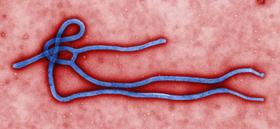Ebola Not Expected to Pose Major Threat

State officials, including Gov. Nathan Deal, say having hospitals prepared to handle the threat of Ebola is a top priority.
Educating the general public is also being stressed.
“We are working to ensure that all of Georgia knows what to look for, what questions to ask and what to do,” says Dr. Brenda Fitzgerald, the commissioner of the Georgia Department of Public Health.
According to the Centers for Disease Control and Prevention: Ebola is spread through direct contact (through broken skin or mucous membranes in, for example, the eyes, nose, or mouth) with blood or body fluids of an Ebola-infected person. Direct contact means that body fluids (blood, saliva, mucus, vomit, urine, or feces) from an infected person (alive or dead) have touched someone’s eyes, nose, or mouth or an open cut, wound, or abrasion. Ebola is killed with hospital-grade disinfectants (such as household bleach).
“As it stands now, I really don’t believe that the general population needs to have a great deal to worry about this,” says Andy Miller, Editor and CEO of Georgia Health News.
An audio version of this story.
But if you have a fever over 101.5, it might be a good idea to seek medical attention.
“The doctor will then ask about whether they have a fever or not, other sorts of symptoms, such as nausea, vomiting, diarrhea, muscle aches and pains and fatigue and they should ask about travel history,” says Dr. Christopher Whalen, from the University of Georgia’s College of Public Health.
The Ebola virus spreads to various cells quickly in those infected, that’s why Whalen says the sooner it is addressed, the better.
Miller says one way to take away some of the guess work is to get a flu shot.
“Because this is flu season coming upon us and many of these same symptoms are associated with the flu.”
Specific guidelines about Ebola have been sent to all of the colleges and universities in the state.
9(MDAxODM0MDY4MDEyMTY4NDA3MzI3YjkzMw004))








